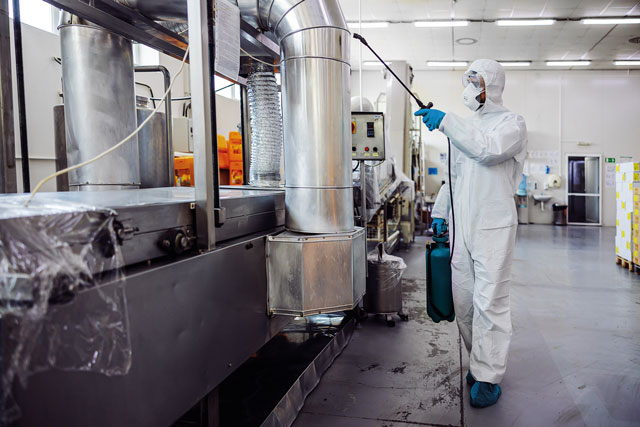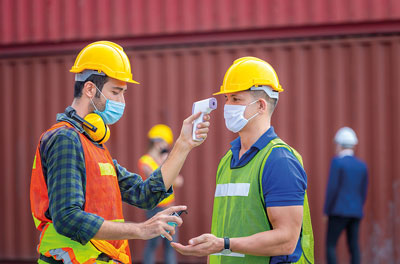After an extended period working from home, many people will be feeling anxious about returning to their normal workplace. Linda Hausmanis, chief executive officer of the Institute of Workplace and Facilities Management, discusses how employers can reassure them for the long term.

The Covid-19 crisis has helped many people take stock of their work-life balance in quite a principled manner. An unexpected outcome of this terrible experience has been that it has given an unparalleled number of workers in the UK 12 weeks’ experience of the joys, frustrations and challenges of working remotely. As employers and employees, everyone is better informed than ever of the best and worst elements of home working. Now is the time to learn from our experience and build on this.
Health and safety concerns continue to be high on the public’s agenda. As workplaces begin to reopen, many employees across the country will be feeling anxious about the health risk of returning to their regular workplaces. The IWFM’s latest research finds that, on returning to the office, the two biggest concerns for half (49%) of office-based employees are the ability to maintain social distancing and being sure of safe hygiene and cleaning standards.

It is clear that communication between businesses and staff is vital to manage the anxiety of a workforce emerging from lockdown. Encouragingly, 59% of those surveyed say employers have sent regular communications, with 45% encouraging employee involvement. Yet it’s clear that a post-pandemic return requires comprehensive execution: only 30% surveyed say their employer has provided a risk assessment and fewer than four in ten (37%) feel their employer is doing enough to protect their health and safety in planning for their return.
Workplace and facilities managers have had to adjust very quickly in the past few months to new and changing government and sector guidelines. This has been a steep learning curve as activity and control surrender inevitably to reacting to the demands of a shifting landscape.
As many have found, organising a new and safe workplace reality for the nation’s workforce requires the same, if not more, effort than the transition to a home-working set-up. A collaborative effort over all areas of the business including IT, human resources and internal comms is essential to formulate an integrated plan for people to take on new and varied working patterns, longer-term.
What has happened represents a massive cultural change in how people think about work. The organisations most likely to emerge in the best position will be those that step away from the command and control style of management. Instead, forging a new role for the workplace and empowering employees to make their own decisions will be a prevalent theme. Workplace and facilities managers should enable their organisations to create workplaces fit for this cultural change.
In preparing for a return, decision-makers should seek to understand the needs and concerns of their people in the present situation. A simple anonymous survey will help gauge the overall feeling of the organisation. There is no “one size fits all” approach to this. Individuals will have different anxieties and needs: the key is offering flexible options for a wide range of employee expectations. It is important to note that this is a long-term commitment and once workplaces reopen, organisations should continue to engage and evaluate with employees as the new normality emerges.
The lockdown has shown many organisations that working remotely at scale does work. Forced mass testing of IT systems has enabled cultural taboos, such as the dreaded video calling, to be dismissed. This creates the perfect opportunity for businesses to make a real and lasting change in workplace culture. To do this, it will be necessary to dismantle and evaluate the old normality and build something that marries flexibility with productivity in a new normality.
In turbulent times, one certainty is that there will be many more changes to the workplace in future months and years, and so the flexibility of workplace and facilities managers, alongside businesses, will be vital in responding to change and not only keeping workers safe in their workspaces today, but retaining them in the organisation for the long term.
www.iwfm.org.uk | info@iwfm.org.uk | 01279 712 620

